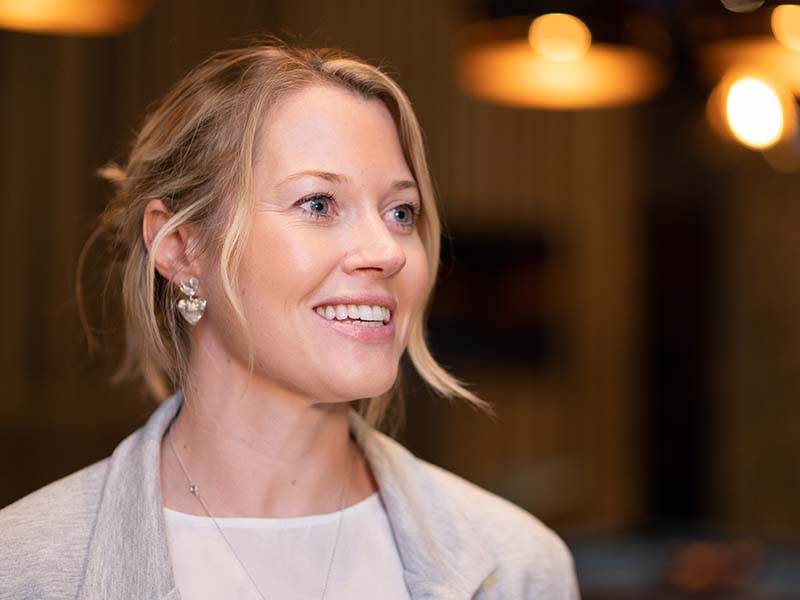Bridging the talent gap
It is no secret that the economy is currently facing talent shortages and skills gaps.
In fact, a report published last year by the Professional & Business Services Council and the Financial Services Skills Commission found that almost a third of UK firms have a shortage of financial, professional or business skills. Professional services in particular has been hit hard by labour shortages.
Faced with this challenge, accountancy firms might be tempted to recruit from the existing pool of qualified employees already on the market, but this approach alone won’t bridge the gap.
Alternatively, graduate trainee schemes could hold the key to alleviating talent shortages and plugging the skills gap. Not only can they enable firms to attract great talent from untapped pools, they also offer great benefits for both employers and employees, which translates into long-term talent retention.
The benefits of graduate trainee schemes for employers
Attracting a wider talent pool
Graduate trainee schemes can enable employers to recruit from a wider and new talent pool, while representing an attractive option for young people who have just finished university and are eager to learn and embark on their new career.
Retaining critical skills for the future
In addition, tailored traineeships equip graduates with exactly the right skills they need to succeed in a career in the services industry. By training graduates in-house, accountancy firms can focus on teaching the skills that they need now, and in the future, rather than scouring the market for existing talent.
The practicalities of hiring graduates
Deciding on the types of scheme to offer
This really comes down to analysing existing and future business needs and determining the in-house resources available to support new trainees. Where does the business most need support and what could you offer new graduates?
It’s also worth thinking about your minimum requirements. For instance, if you’re offering a graduate scheme in tax and want someone who can hit the ground running, it might be worth looking for graduates who studied tax as part of their degree. However, if you have more resources to spare and can afford to offer more intensive training, you can look beyond degree specialisms and find talented candidates who may have studied something completely different but would make excellent tax specialists.
You could also offer schemes on a rotational basis where graduates can spend time in several departments before deciding what they want to specialise in.
Finding the right candidates
Recruiting graduates differs from standard recruitment in that candidates may not have any previous work history. In fact, they might only have a predicted degree grade. So how can you know whether you are recruiting the right individuals? While candidates might not have exactly the right skills, they may well have the set of qualities you are looking for.
Look for passionate, energetic, inquisitive and diligent candidates who are motivated to succeed. While they will need to possess a strong work ethic and resilience when it comes to studying for challenging exams, they will also need to have the potential to develop soft skills in teamwork, adaptability, critical thinking and leadership. They may have demonstrated this through their involvement in sport teams, extra-curricular clubs or volunteering.
The value of traineeships
Hear from our current trainee’s at Gerald Edelman as they explain the value of the experience.
“Since joining, I have found all of the members on the tax team to be very approachable and I have felt fully supported each and every step of the way. Although I do not have a background in Accountancy or Tax, I have never felt that this has put me at a disadvantage when working at GE. Working in the tax team is more than just the job, I have also made lifelong friendships.” Jenna Buckle – tax trainee
“One of the great things about working with Gerald Edelman is that you are able to work with people all across the business and on clients of all types of industry and size. This exposure opens up significant opportunities for development and progression.” Alexander Dady, Audit Trainee
The bottom line
Rather than seeing graduate traineeships as a resource-intensive process, see them as an opportunity to improve your current and future business.
Many bright young people who are fresh out of university will be looking to get stuck in to a graduate-level position, and offering them a traineeship is a great way to maximise their skills set and get them to take on increasing levels of responsibility as they learn and grow with the company.
Furthermore, by tailoring the schemes to the specific needs of the company, you can directly plug the talent gap and give young people the opportunity to become future leaders of the business.

Let’s get started
Contact page
Contact Us




